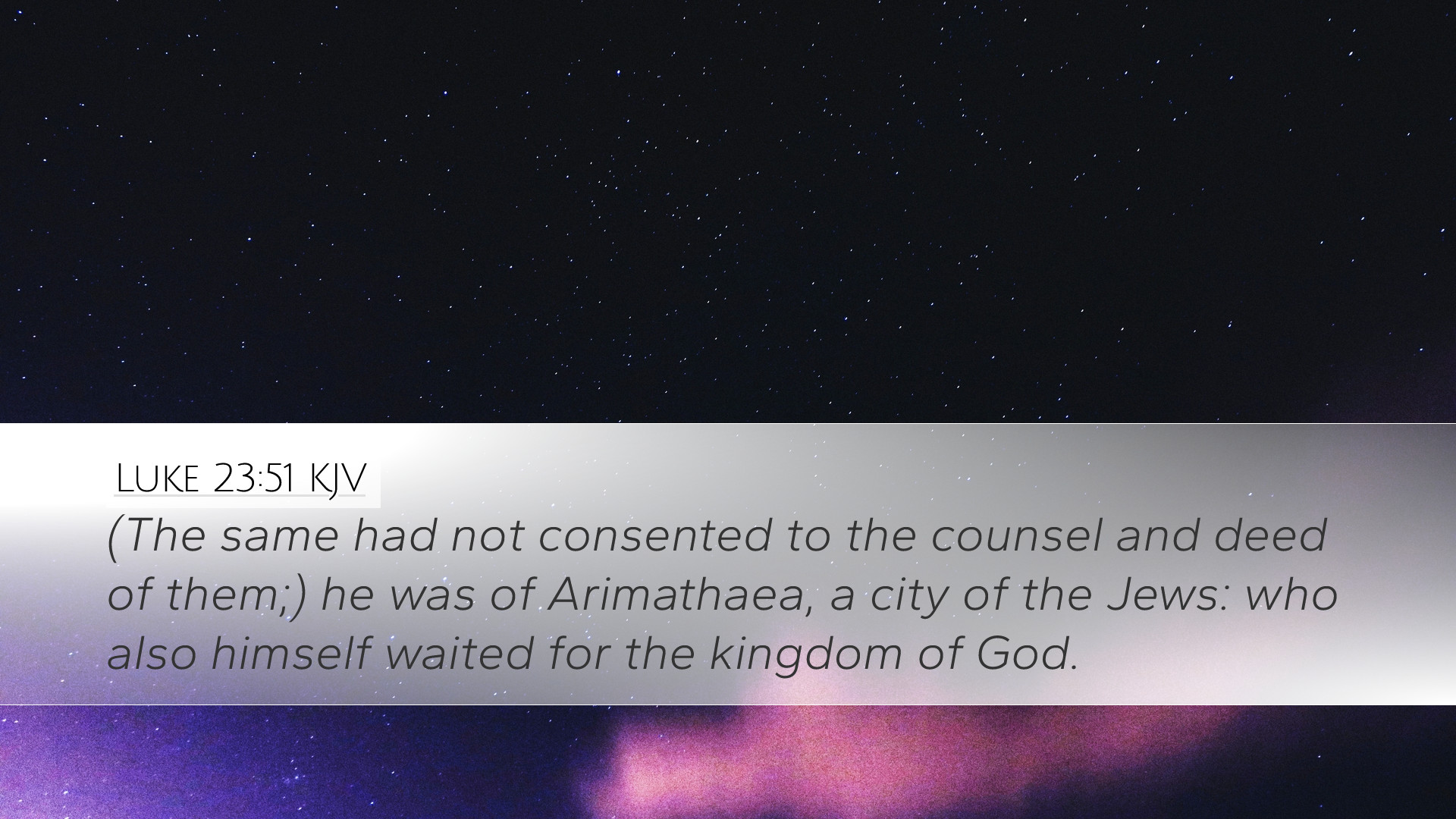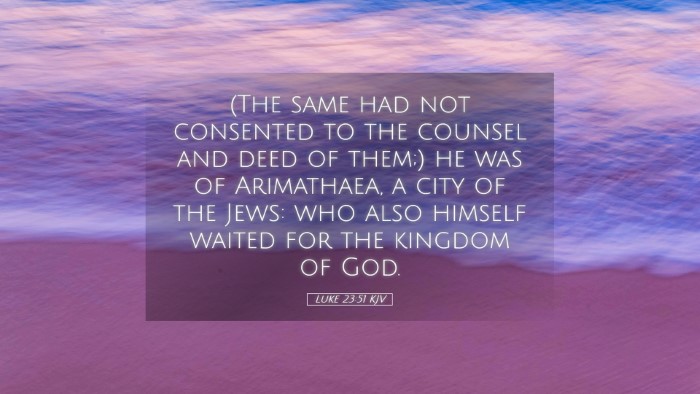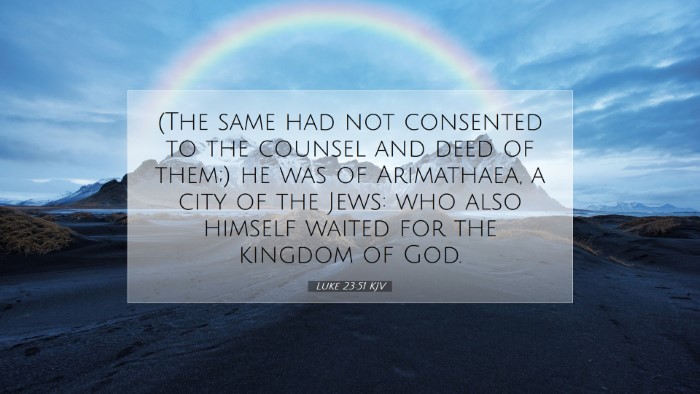Commentary on Luke 23:51
Luke 23:51 states: "(The man had not consented to their decision and action.) He was from the Judean town of Arimathea and he was waiting for the kingdom of God."
Contextual Overview
In the gospel of Luke, this verse appears during the trial and crucifixion narrative of Jesus. It mentions Joseph of Arimathea, who plays a crucial role in the burial of Jesus. Understanding Joseph's character and the weight of his actions during this critical timeframe gives insight into the circumstances surrounding the death and resurrection of Christ.
Insights from Commentaries
Matthew Henry's Commentary
Matthew Henry emphasizes Joseph's integrity and moral courage. Despite being a member of the Sanhedrin, Joseph did not consent to the council's decision to condemn Jesus. This illustrates his fidelity to justice and righteousness. Henry highlights that true discipleship sometimes requires standing alone and taking a stand against public opinion, emphasizing that Joseph was a secret disciple of Christ but took a bold step during these tumultuous events.
Albert Barnes' Commentary
Albert Barnes provides an analysis of Joseph's background, asserting that he was not only a prominent man but also a good and just person who yearned for the coming of the kingdom of God. Barnes notes that the text affirms Joseph's disagreement with the council, which positions him as a significant witness to the legitimacy of Jesus’ ministry. His request for Jesus' body is seen as a final act of love and devotion. Barnes points out the significance of Joseph's actions as an example of faith and public acknowledgment of Christ, which can inspire others to do the same.
Adam Clarke's Commentary
Adam Clarke highlights the geographical origin of Joseph as Arimathea, thus emphasizing the idea of searching for the Messiah, as Arimathea means "the house of the harvest." Clarke explains that Joseph was waiting for the kingdom of God, which signifies his hope and anticipation for divine fulfillment. Clarke suggests that there is a spiritual lesson in waiting faithfully for God's promises, paralleling it with the hope that all believers should cultivate in their lives. Joseph's actions reflect a commitment to the truth and show that even in dark times, hope can lead to meaningful action.
Theological Reflections
The narrative of Joseph of Arimathea conveys profound theological implications about courage in discipleship. His willingness to act in a moment of crisis exemplifies what it means to take a stand for one’s beliefs. The verse encourages readers to consider their own convictions and the lengths to which they will go in expressing their faith, particularly in challenging contexts.
Practical Applications
- Courage in Conviction: Joseph's example inspires believers to stand firm in their faith, even when it conflicts with societal norms or expectations.
- Active Discipleship: The call to be an active disciple is echoed in Joseph's actions; believers are urged to engage with their faith publicly.
- Hope in Dark Times: The waiting and hopeful posture of Joseph serves as a reminder that hope is powerful, especially in difficult moments.
Conclusion
Luke 23:51 invites readers to explore the profound implications of individual actions in the face of systemic injustices. Joseph of Arimathea's role symbolizes both the personal and community aspects of faith, provoking thought about what it means to truly live out one's beliefs in society. The insights from various commentaries highlight the need for integrity, active faith, and hope, encouraging all who reflect upon this verse to strive for a deeper understanding and practice of their faith.


